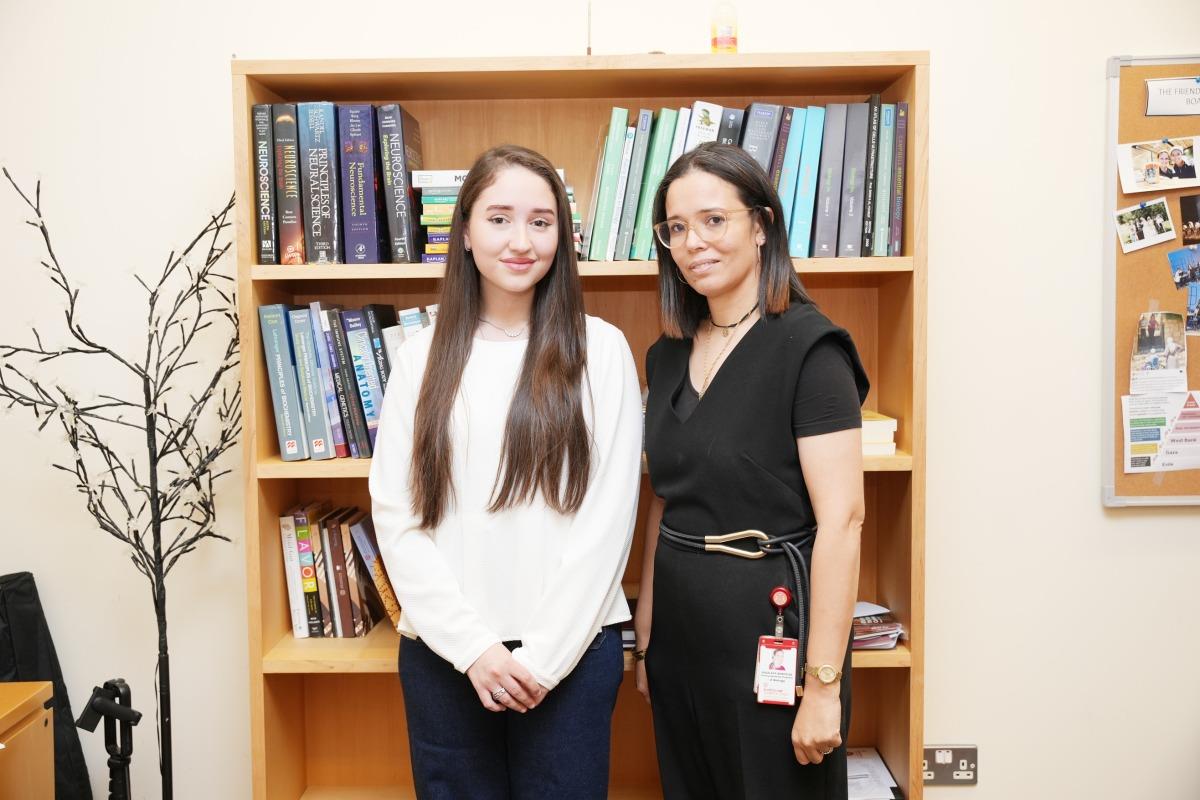
WCM-Q Shares Expertise At Community-Driven Autism Event
Doha, Qatar: Weill Cornell Medicine-Qatar (WCM-Q) participated in the Autism Connect 2024 event, an annual initiative organized by the Child Development Center (CDC) for Special Needs. The one-day community-driven event is dedicated to fostering connections, providing education, and promoting empowerment within the autism community.
Dr. Ghizlane Bendriss, a neuroscientist and assistant professor of biology at WCM-Q, joined leading experts for a panel discussion titled“Autism: Diagnosis, Intervention, and Advances in Research.”
Dr. Bendriss teaches biology and neuroscience to pre-medical students at WCM-Q and leads several educational and research projects investigating the role of gut microbiota in neurological and neuropsychiatric conditions, including autism spectrum disorders (ASD). In 2017, she was awarded an Undergraduate Research Experience Program (UREP) grant to conduct one of the first clinical explorations of gut microbiome in Qatar.
During the panel discussion, Dr. Bendriss explored the intricate topic of gut-brain axis in autism. She highlighted the growing body of evidence linking the loss of diversity in gut microbes to autism-like behavior. Dr. Bendriss also stressed the importance of adopting a healthy lifestyle to regulate gut microbes and prevent the emergence of diseases.
“Autism is a neurological and developmental disorder that affects social interaction, communication, behavior, and learning,” said Dr. Bendriss.“The neurodevelopmental challenges are complex, making it essential to continue our efforts to improve the lives of individuals with autism. I am honored to have been invited to share my expertise, and sincerely thank the CDC for their dedication to building an educated and supportive autism community through initiatives such as Autism Connect 2024.”
Dr. Bendriss was accompanied by Sama Ayoub, a second-year WCM-Q pre-medical student. Together, they have conducted a pioneering study that compares local Qatari yogurts to imported probiotic yogurts, characterizing enhancing properties such as resistance to acidity, probiotic content, antibiotic properties against pathogens, and antibiotic resistance. Ayoub is the first author of a paper on the topic, and she and Dr. Bendriss have also published a protocol for making highly probiotic-rich yogurt at home.

Legal Disclaimer:
MENAFN provides the
information “as is” without warranty of any kind. We do not accept
any responsibility or liability for the accuracy, content, images,
videos, licenses, completeness, legality, or reliability of the information
contained in this article. If you have any complaints or copyright
issues related to this article, kindly contact the provider above.

















Comments
No comment